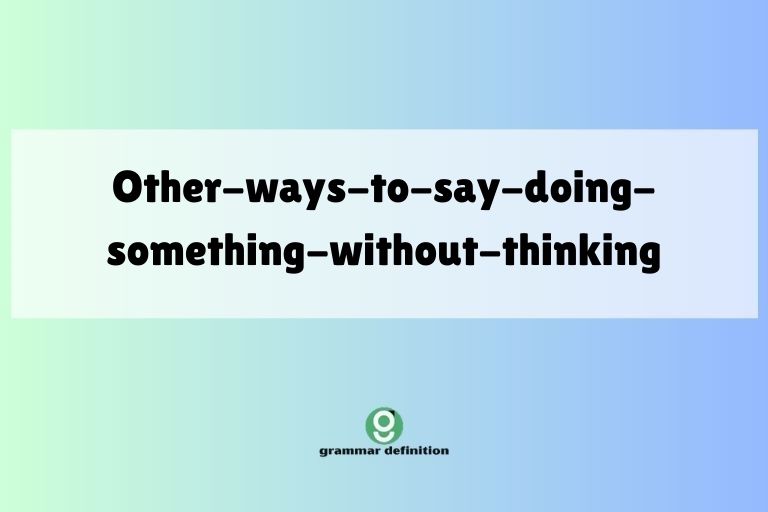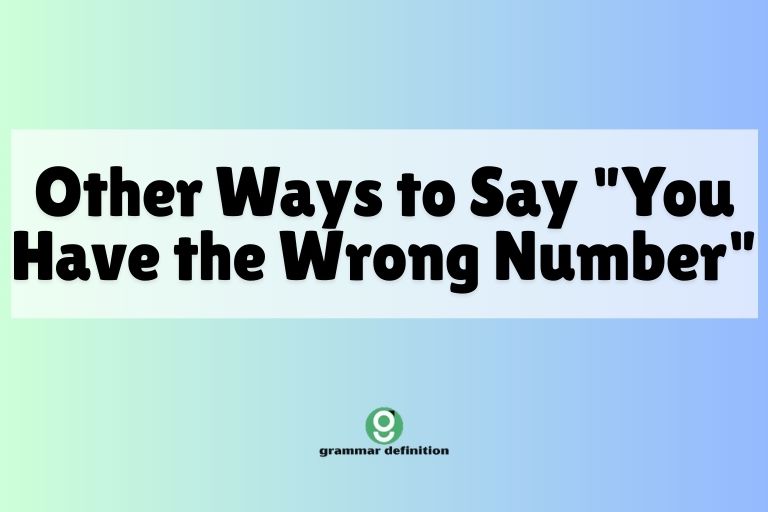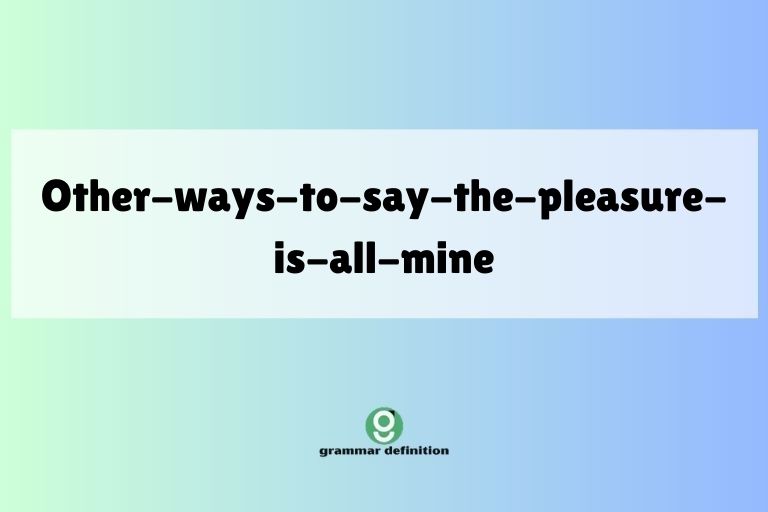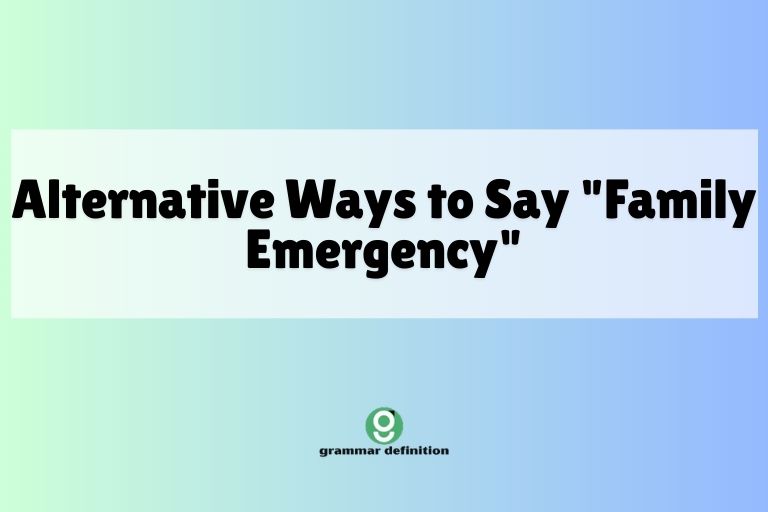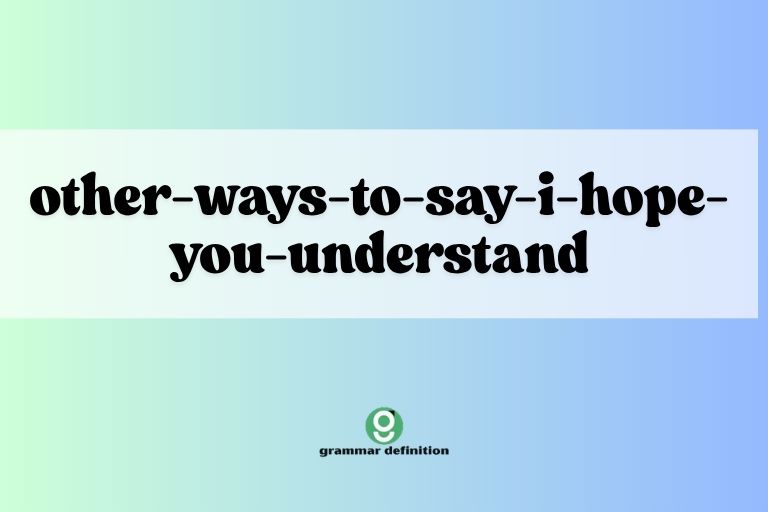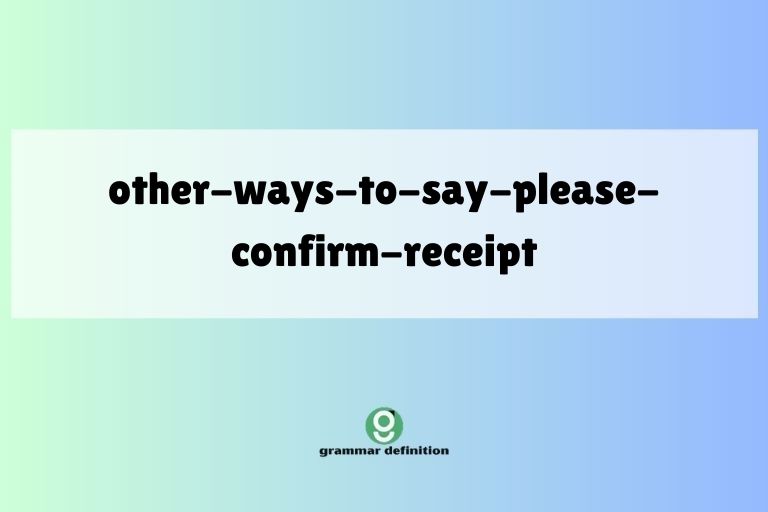Beyond “Thank You”: Creative Ways to Express Gratitude for Sharing
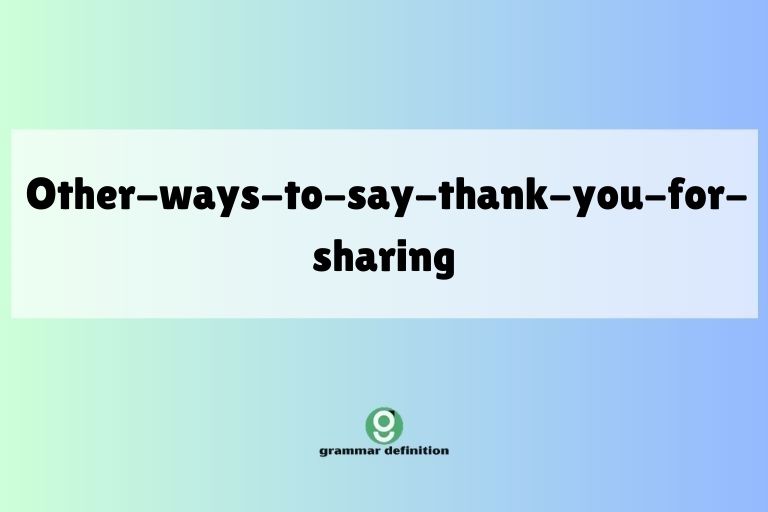
Expressing gratitude is a fundamental social skill, and while “thank you” is a universally understood phrase, expanding your repertoire of grateful expressions can significantly enhance your communication and relationships. This article delves into various alternative ways to acknowledge and appreciate someone’s act of sharing, whether it’s information, resources, or experiences.
Mastering these expressions will not only make your interactions more meaningful but also demonstrate a higher level of linguistic proficiency. This comprehensive guide is designed for English language learners of all levels, from beginners seeking basic alternatives to advanced speakers aiming for nuanced communication.
Table of Contents
- Introduction
- What Does “Thank You for Sharing” Really Mean?
- Structural Breakdown of Gratitude Expressions
- Types and Categories of Gratitude Expressions
- Extensive Examples
- Usage Rules and Considerations
- Common Mistakes to Avoid
- Practice Exercises
- Advanced Topics in Expressing Gratitude
- Frequently Asked Questions
- Conclusion
What Does “Thank You for Sharing” Really Mean?
“Thank you for sharing” is a phrase used to express gratitude when someone has shared something with you. This “something” can be tangible, like food or a physical object, or intangible, like information, experiences, or emotions.
The core function of the phrase is to acknowledge the act of sharing and to convey that you value the other person’s generosity or willingness to open up. The phrase operates as a polite social convention, reinforcing positive interactions and strengthening relationships.
The phrase’s meaning is deeply rooted in social etiquette and reciprocity. When someone shares, they are making themselves vulnerable in some way, whether by parting with a possession or by revealing personal details.
Acknowledging this act with a sincere expression of gratitude strengthens the bond between individuals. The specific context of the sharing dictates the nuance of the gratitude.
For example, thanking someone for sharing their lunch differs significantly from thanking them for sharing a personal story. Understanding these nuances is crucial for effective communication.
Structural Breakdown of Gratitude Expressions
Gratitude expressions, while seemingly simple, can be broken down into key structural components: the acknowledgment, the reason, and the optional enhancer. The acknowledgment is the core expression of thanks, such as “thank you,” “I appreciate,” or “I am grateful.” The reason specifies what you are thankful for; in this case, “for sharing.” The optional enhancer adds emphasis or specificity, such as “very much,” “immensely,” or a more detailed description of what was shared and its impact.
The basic structure is: [Acknowledgment] + [for sharing] + [Optional Enhancer]. However, this structure can be modified to create more complex and nuanced expressions.
For instance, you can rephrase the “for sharing” component to be more descriptive. Instead of “Thank you for sharing your thoughts,” you could say “I appreciate you sharing your valuable insights.” The choice of words in each component significantly affects the tone and impact of the expression.
Types and Categories of Gratitude Expressions
Gratitude expressions can be categorized based on formality, specificity, and the aspect of the sharing that is being appreciated. Understanding these categories helps you choose the most appropriate expression for a given situation.
Formal Expressions
Formal expressions are used in professional settings, when addressing superiors, or in situations where a high degree of respect is required. These expressions tend to be more elaborate and avoid colloquialisms.
Informal Expressions
Informal expressions are suitable for friends, family, and close colleagues. These expressions are often shorter, more casual, and may include slang or idiomatic phrases.
Expressions of Specific Appreciation
These expressions highlight a particular aspect of the sharing that you found valuable. They demonstrate that you were paying attention and appreciate the specific contribution.
Expressions Acknowledging Effort
These expressions recognize the effort or time that someone put into sharing something. They are particularly appropriate when the sharing required significant work or preparation.
Expressions Expressing Impact
These expressions focus on the positive impact that the sharing had on you. They show that the sharing was not only appreciated but also made a difference.
Extensive Examples
The following tables provide a wide range of examples for each category of gratitude expressions. These examples demonstrate the various ways you can express your appreciation for someone’s act of sharing, tailored to different contexts and levels of formality.
Formal Examples
This table presents formal ways to express gratitude for sharing, suitable for professional or respectful settings. These phrases are polished and convey a high degree of appreciation.
| Formal Gratitude Expression | Context |
|---|---|
| I am deeply grateful for you sharing your expertise on this matter. | A colleague sharing specialized knowledge during a presentation. |
| We extend our sincere appreciation for you sharing your insights at the conference. | A speaker sharing valuable information at a professional event. |
| I am most appreciative of you sharing your time and resources with our team. | A manager sharing resources or dedicating time to support a project. |
| Please accept our heartfelt gratitude for sharing your valuable feedback on the proposal. | A reviewer providing constructive criticism on a formal document. |
| We are highly indebted to you for sharing your profound wisdom and guidance throughout this project. | A mentor sharing their experience and advice. |
| It was exceptionally generous of you to share your research findings with our institution. | A researcher sharing their data with another organization. |
| I am exceedingly thankful for your willingness to share your perspective on this complex issue. | A panelist sharing their point of view during a debate. |
| Your sharing of best practices has been invaluable to our organization’s growth. | An expert sharing successful strategies with a company. |
| The board wishes to express its profound gratitude for your sharing of sensitive information with discretion. | An individual sharing confidential data with the board of directors. |
| I am exceedingly grateful for the opportunity to learn from your shared experiences and insights. | A trainee or junior employee learning from a senior colleague. |
| We owe you a debt of gratitude for sharing your innovative approach to problem-solving. | An individual sharing a novel solution to a persistent issue. |
| Your sharing of industry trends has greatly benefited our strategic planning process. | An industry analyst sharing market insights. |
| We are immensely thankful for your sharing of your personal journey, which has inspired many. | A motivational speaker sharing their life story. |
| The committee extends its gratitude for your sharing of your detailed report on the project’s progress. | A project manager presenting a thorough update to a committee. |
| I am deeply appreciative of your sharing of your network connections, which has opened new doors for us. | An individual sharing their professional contacts. |
| We are profoundly grateful for your sharing of your cultural heritage and traditions with our community. | An individual sharing their cultural background with a group. |
| Your sharing of your philanthropic efforts has motivated us to increase our charitable contributions. | A philanthropist sharing their charitable activities. |
| The institution is deeply indebted to you for sharing your historical knowledge and preserving our legacy. | A historian sharing their expertise on a particular period. |
| We are exceedingly grateful for your sharing of your artistic talent, which has enriched our lives. | An artist sharing their work with the public. |
| I am profoundly thankful for your sharing of your scientific discoveries, which have advanced our understanding of the universe. | A scientist sharing their research findings. |
| We are deeply appreciative of your sharing of your legal expertise, which has guided us through complex challenges. | A lawyer sharing their legal advice. |
| Your sharing of your medical knowledge has been invaluable to our healthcare professionals. | A doctor sharing their medical expertise. |
| We extend our heartfelt gratitude for your sharing of your educational resources, which have benefited our students immensely. | A teacher sharing their teaching materials. |
Informal Examples
This table provides informal ways to express gratitude for sharing, suitable for casual conversations with friends and family. These phrases are relaxed and convey genuine appreciation.
| Informal Gratitude Expression | Context |
|---|---|
| Thanks a bunch for sharing that! | A friend sharing a funny story. |
| I really appreciate you sharing that with me. | A friend sharing a personal problem. |
| That was so kind of you to share. | Someone sharing their food. |
| Cheers for sharing! | A friend sharing good news. |
| You’re a star for sharing that! | Someone sharing a helpful tip. |
| Thanks for letting me in on that. | Someone sharing a secret or insider information. |
| I owe you one for sharing that. | Someone sharing a valuable resource. |
| I’m so glad you shared that with me. | Someone sharing a vulnerable moment. |
| That’s really generous of you to share. | Someone sharing their possessions. |
| Thanks for thinking of me and sharing. | Someone sharing something they thought you’d like. |
| You’re the best for sharing that! | Someone sharing a solution to a problem. |
| I’m grateful you felt comfortable sharing that with me. | Someone sharing a difficult experience. |
| Big thanks for sharing! | Someone sharing something exciting. |
| I’m really touched that you shared that. | Someone sharing something deeply personal. |
| Thanks for being so open and sharing. | Someone sharing their thoughts and feelings. |
| Appreciate you sharing that, mate! | A friend sharing some helpful advice. |
| Thanks for the share! | Someone sharing a link or a post online. |
| You made my day by sharing that. | Someone sharing something positive or uplifting. |
| I’m lucky to have you sharing with me. | Someone consistently sharing valuable things. |
| Seriously, thanks for sharing. It means a lot. | Someone sharing something significant during a tough time. |
| Thanks for sharing your perspective! | A friend sharing a new point of view. |
| You’re a lifesaver for sharing that! | Someone sharing critical information or help. |
| I can’t thank you enough for sharing. | Someone sharing something exceptionally valuable. |
Specific Appreciation Examples
This table provides expressions that highlight specific aspects of what was shared, demonstrating that you were attentive and appreciate the particular contribution.
| Specific Appreciation Expression | Context |
|---|---|
| Thank you for sharing your insights; they were incredibly helpful. | Someone sharing valuable opinions. |
| I appreciate you sharing your time; it made a big difference. | Someone dedicating time to help you. |
| Thank you for sharing your expertise; I learned so much. | Someone sharing specialized knowledge. |
| I’m grateful for you sharing your story; it was very inspiring. | Someone sharing a personal narrative. |
| Thank you for sharing your resources; they’ll be invaluable. | Someone sharing tools or materials. |
| I appreciate you sharing your perspective; it opened my eyes. | Someone sharing a different viewpoint. |
| Thank you for sharing your advice; it’s exactly what I needed. | Someone sharing helpful guidance. |
| I’m grateful for you sharing your experience; it’s very reassuring. | Someone sharing relevant past experiences. |
| Thank you for sharing your knowledge; it’s greatly appreciated. | Someone sharing their understanding of a subject. |
| I appreciate you sharing your creativity; it’s truly inspiring. | Someone sharing their artistic or innovative ideas. |
| Thank you for sharing your enthusiasm; it’s contagious. | Someone sharing their passion and excitement. |
| I’m grateful for you sharing your optimism; it’s very encouraging. | Someone sharing a positive outlook. |
| Thank you for sharing your honesty; it’s invaluable. | Someone sharing truthful and candid information. |
| I appreciate you sharing your feedback; it’s very constructive. | Someone sharing helpful criticism. |
| Thank you for sharing your vision; it’s truly inspiring. | Someone sharing their long-term goals and plans. |
| I’m grateful that you shared your vulnerability; it fostered trust. | Someone sharing a personal and emotional experience. |
| Thank you for sharing your detailed analysis; it clarified many points. | Someone sharing a thorough breakdown of a complex topic. |
| I appreciate you sharing your practical tips; they’re very useful. | Someone sharing actionable and helpful suggestions. |
| Thank you for sharing your unique insights; they offered a fresh perspective. | Someone sharing original and creative thoughts. |
| I’m grateful that you shared your positive energy; it lifted my spirits. | Someone sharing their cheerful and uplifting demeanor. |
| Thank you for sharing your compelling arguments; they were very persuasive. | Someone sharing convincing reasons and evidence. |
| I appreciate you sharing your personal anecdotes; they made the topic relatable. | Someone sharing relevant stories to illustrate a point. |
| Thank you for sharing your comprehensive research; it was incredibly informative. | Someone sharing in-depth and well-documented findings. |
Acknowledging Effort Examples
This table provides expressions that recognize the effort or time someone put into sharing something, showing appreciation for their dedication.
| Acknowledging Effort Expression | Context |
|---|---|
| I appreciate the effort you put into sharing this information. | Someone spending time researching and presenting data. |
| Thank you for taking the time to share your expertise with us. | An expert dedicating their time to give a lecture. |
| I recognize the work you put into sharing this report; thank you. | Someone compiling and sharing a detailed report. |
| Thank you for going to the trouble of sharing this with me. | Someone exerting extra effort to provide assistance. |
| I appreciate the thought you put into sharing this gift. | Someone carefully selecting and sharing a thoughtful gift. |
| Thank you for your dedication in sharing your knowledge. | A teacher or mentor committed to sharing their expertise. |
| I appreciate the care you took in sharing this sensitive information. | Someone handling and sharing confidential data with caution. |
| Thank you for your commitment to sharing your insights. | Someone consistently sharing valuable perspectives. |
| I appreciate the energy you invested in sharing your passion with us. | Someone enthusiastically sharing their interests and hobbies. |
| Thank you for the meticulous effort you made in sharing this presentation. | Someone carefully preparing and delivering a detailed presentation. |
| I appreciate the thoroughness you displayed in sharing your analysis. | Someone providing a comprehensive and detailed analysis. |
| Thank you for the initiative you showed in sharing your ideas. | Someone proactively sharing their innovative thoughts. |
| I appreciate the creativity you invested in sharing your artistic work. | An artist putting effort into sharing their creations. |
| Thank you for the patience you demonstrated in sharing your teaching. | A teacher patiently sharing their knowledge with students. |
| I appreciate the thorough preparation you undertook in sharing this plan. | Someone meticulously planning and sharing a strategy. |
| Thank you for the research you conducted to share this information. | Someone investing time and effort in gathering and sharing data. |
| I appreciate the organization you demonstrated in sharing these documents. | Someone neatly organizing and sharing important paperwork. |
| Thank you for the coordination you managed in sharing this project. | Someone effectively coordinating and sharing a collaborative effort. |
| I appreciate the thoughtfulness you exhibited in sharing your advice. | Someone carefully considering and sharing helpful guidance. |
| Thank you for the time and effort you invested in sharing this experience. | Someone dedicating significant resources to share a memorable event. |
| I appreciate you taking the initiative to share your findings with us. | Someone proactively sharing research results. |
| Thank you for your dedication to sharing your skills and expertise. | An individual committed to teaching and mentoring others. |
| I appreciate the care and precision you showed in sharing these details. | Someone meticulously sharing important and delicate information. |
Expressing Impact Examples
This table provides expressions that focus on the positive impact the sharing had on you, showing that it made a significant difference.
| Expressing Impact Expression | Context |
|---|---|
| Your sharing made a real difference; thank you. | Someone’s advice leading to a positive outcome. |
| I appreciate you sharing; it really helped me understand. | Someone clarifying a complex topic. |
| Thank you for sharing; it gave me a new perspective. | Someone offering a different viewpoint. |
| Your sharing was invaluable; I’m very grateful. | Someone providing crucial information or resources. |
| Thank you for sharing; it inspired me to take action. | Someone motivating you to pursue a goal. |
| I appreciate you sharing; it made my day brighter. | Someone sharing positive news or a kind gesture. |
| Thank you for sharing; it gave me the confidence I needed. | Someone offering encouragement and support. |
| I appreciate you sharing; it provided much-needed clarity. | Someone simplifying a confusing situation. |
| Thank you for sharing; it opened my eyes to new possibilities. | Someone presenting new opportunities or ideas. |
| I appreciate you sharing; it made a significant impact on my work. | Someone’s contribution improving your performance. |
| Thank you for sharing; it helped me solve a difficult problem. | Someone providing a solution to a challenging issue. |
| I appreciate you sharing; it strengthened my resolve. | Someone reinforcing your determination to achieve a goal. |
| Thank you for sharing; it provided me with much-needed support. | Someone offering emotional or practical assistance. |
| I appreciate you sharing; it gave me a sense of hope. | Someone instilling optimism in a difficult situation. |
| Thank you for sharing; it made me feel understood. | Someone showing empathy and validation. |
| I appreciate you sharing; it enriched my understanding of the topic. | Someone providing in-depth knowledge and insights. |
| Thank you for sharing; it contributed significantly to our project’s success. | Someone’s contribution leading to a positive outcome for a team effort. |
| I appreciate you sharing; it inspired me to be more creative. | Someone’s artistic work or innovative ideas sparking your imagination. |
| Thank you for sharing; it motivated me to learn more. | Someone’s enthusiasm encouraging you to seek further knowledge. |
| I appreciate you sharing; it helped me make a well-informed decision. | Someone providing valuable information to aid in decision-making. |
| Thank you for sharing; it made a lasting impression on me. | Someone’s insights leaving a significant impact on your thoughts. |
| I appreciate you sharing; it improved my ability to communicate effectively. | Someone offering tips or techniques to enhance your communication skills. |
| Thank you for sharing; it helped me overcome a challenging situation. | Someone providing guidance or support to navigate a difficult circumstance. |
Usage Rules and Considerations
The appropriate usage of gratitude expressions depends heavily on context, relationship, and cultural norms. In formal settings, it is essential to use polished and respectful language.
Avoid slang or colloquialisms. Address individuals by their proper titles (e.g., Mr., Dr., Professor) unless explicitly invited to use their first name.
In informal settings, you can be more relaxed and casual, but it’s still important to be sincere and genuine.
Consider the specific act of sharing. If someone shared something particularly valuable or personal, a more elaborate and heartfelt expression of gratitude is warranted.
If someone shared something minor, a simple “thank you” or “I appreciate it” may suffice. Pay attention to non-verbal cues.
A sincere smile, eye contact, and a genuine tone of voice can significantly enhance the impact of your words. Be mindful of cultural differences.
Different cultures have different norms regarding the expression of gratitude. Research and observe the customs of the culture you are interacting with to ensure your expressions are appropriate and well-received.
Common Mistakes to Avoid
One common mistake is using overly casual language in formal settings. For example, saying “Cheers for sharing!” to your boss would be inappropriate.
Another mistake is giving insincere or generic thanks. A mumbled “thank you” with no eye contact can come across as dismissive or ungrateful.
Avoid using clichés excessively. While phrases like “I can’t thank you enough” can be sincere, overuse can diminish their impact.
Be specific in your gratitude. Instead of just saying “Thank you for sharing,” explain what you appreciated about the sharing.
Finally, avoid forgetting to express gratitude altogether. Even a simple “thank you” is better than no acknowledgment at all.
Here’s a table illustrating some common mistakes and their corrected versions:
| Incorrect | Correct | Explanation |
|---|---|---|
| Cheers for sharing, mate! (to a professor) | I appreciate you sharing your expertise, Professor. | Using overly casual language in a formal setting. |
| Thanks. (mumbled, without eye contact) | Thank you for sharing your time; I appreciate it. (said with a smile and eye contact) | Giving insincere or dismissive thanks. |
| I can’t thank you enough! (said repeatedly for minor things) | Thank you for your help with this task. | Overusing a cliché, diminishing its impact. |
| Thank you for sharing. (without specifying what you appreciated) | Thank you for sharing your insights; they were very helpful in understanding the issue. | Being too generic and not specific. |
| (Silence after someone shares something helpful) | Thank you for sharing; I really appreciate your help. | Forgetting to express gratitude altogether. |
Practice Exercises
Test your understanding with these practice exercises. Match the appropriate gratitude expression to the given scenario.
Answers are provided below.
| Question | Scenario | Possible Answers |
|---|---|---|
| 1. What would you say to a colleague who shared a helpful article? | A colleague sends you an article that helps you solve a problem at work. | a) “Cheers for sharing!” b) “Thank you for sharing the article; it was very helpful.” c) “I can’t thank you enough!” |
| 2. How would you thank a friend who shared a personal story with you? | A friend confides in you about a difficult experience they had. | a) “Thanks for the share!” b) “I’m really touched that you shared that with me.” c) “Thanks.” |
| 3. What would you say to a speaker who shared valuable insights at a conference? | You attend a conference and a speaker provides a lot of helpful information. | a) “You’re a star for sharing that!” b) “We extend our sincere appreciation for you sharing your insights at the conference.” c) “Thanks a bunch!” |
| 4. How would you thank someone who shared their lunch with you when you forgot yours? | A coworker shares their lunch with you when you realize you forgot yours at home. | a) “That was so kind of you to share.” b) “I am deeply grateful for you sharing your expertise on this matter.” c) “I appreciate the effort you put into sharing this information.” |
| 5. What would you say to a mentor who shared their experience and advice with you? | A mentor provides guidance and shares their experiences to help you with your career. | a) “We are highly indebted to you for sharing your profound wisdom and guidance throughout this project.” b) “Thanks for sharing!” c) “You’re the best for sharing that!” |
| 6. You ask your friend for notes on the lecture you missed and they send them. What do you say? | Your friend shares their notes with you. | a) “Thank you for sharing; it really helped me understand.” b) “Thanks for the share!” c) “I am most appreciative of you sharing your time and resources with our team.” |
| 7. What do you say when your significant other is vulnerable with you and you appreciate them trusting you? | Your significant other shares a vulnerable moment with you. | a) “I’m grateful you felt comfortable sharing that with me.” b) “I am exceedingly thankful for your willingness to share your perspective on this complex issue.” c) “That was so kind of you to share.” |
| 8. What do you say to a colleague that helped you understand a new software? | A colleague shares their expertise with you on software. | a) “Thank you for sharing your knowledge; it’s greatly appreciated.” b) “Thanks for thinking of me and sharing.” c) “Your sharing was invaluable; I’m very grateful.” |
| 9. A friend shares info on a new business venture they are embarking on and you are excited for them. What do you say? | A friend shares something exciting with you. | a) “Big thanks for sharing!” b) “I appreciate the effort you put into sharing this information.” c) “I am exceedingly grateful for the opportunity to learn from your shared experiences and insights.” |
| 10. What do you say to a coworker who shared some of their personal contacts with you? | A coworker shares their professional contacts with you. | a) “I am deeply appreciative of your sharing of your network connections, which has opened new doors for us.” b) “I’m really touched that you shared that.” c) “You made my day by sharing that.” |
Answer Key: 1: b, 2: b, 3: b, 4: a, 5: a, 6: a, 7: a, 8: a, 9: a, 10: a
Advanced Topics in Expressing Gratitude
For advanced learners, exploring the nuances of gratitude expressions can involve understanding cultural contexts, mastering subtle variations in tone, and using sophisticated vocabulary. In some cultures, indirect expressions of gratitude are preferred over direct ones.
For example, instead of saying “Thank you for sharing,” you might say “I admire your willingness to share such valuable information.” Pay attention to the use of intensifiers. Words like “deeply,” “immensely,” and “profoundly” can amplify your gratitude, but should be used judiciously to avoid sounding insincere.
Mastering the art of personalized gratitude involves tailoring your expressions to the individual and the specific situation. Consider the recipient’s personality and preferences.
Some people appreciate effusive praise, while others prefer a more understated acknowledgement. Practice active listening to understand the impact of the sharing and reflect that understanding in your response.
For example, if someone shares a personal struggle, you might say, “Thank you for sharing your vulnerability with me. I truly appreciate your trust, and I’m here to support you.” By delving into these advanced topics, you can elevate your communication skills and build stronger, more meaningful relationships.
Frequently Asked Questions
Here are some frequently asked questions about expressing gratitude, along with detailed answers to help you further refine your understanding.
- Q: Is it always necessary to say “thank you for sharing”?
A: While it’s generally good etiquette to express gratitude when someone shares something with you, the necessity depends on the context and your relationship with the person. In most formal or professional situations, expressing thanks is expected. In very casual settings with close friends or family, a simple nod or smile might suffice, but it’s always better to err on the side of politeness.
- Q: How can I make my “thank you” sound more sincere?
A: Sincerity is conveyed through a combination of verbal and non-verbal cues. Make eye contact, smile genuinely, and use a warm, authentic tone of voice. Be specific about what you’re thankful for and explain why it was meaningful to you. Avoid generic phrases and try to personalize your expression of gratitude.
- Q: What if I don’t feel genuinely grateful? Should I still say “thank you”?
A: Even if you don’t feel particularly grateful, it’s often polite to acknowledge the act of sharing, especially in professional or formal settings. You can express a neutral form of appreciation without being overly enthusiastic. For example, you could say, “I appreciate you sharing that information” or “Thank you for your time.”
- Q: How do I thank someone who has shared something negative or difficult with me?
A: When someone shares a negative or difficult experience, it’s important to acknowledge their vulnerability and offer support. You can say, “Thank you for sharing that with me. I’m sorry you’re going through this, and I’m here for you if you need anything.” Focus on empathy and understanding rather than simply expressing gratitude.
- Q: Are there cultural differences in expressing gratitude?
A: Yes, cultural norms regarding the expression of gratitude vary widely. In some cultures, direct expressions of thanks are common and expected, while in others, indirect expressions or gestures are preferred. Research the customs of the culture you’re interacting with to ensure your expressions are appropriate and well-received. For example, in some Asian cultures,
in some Asian cultures, humility is valued, and excessive displays of gratitude might be seen as boastful.
Conclusion
Expanding your repertoire of gratitude expressions beyond a simple “thank you for sharing” can significantly enhance your communication skills and strengthen your relationships. By understanding the nuances of formality, specificity, and impact, you can tailor your expressions to fit any context.
Remember to be sincere, mindful of cultural differences, and specific in your appreciation. With practice and attention to detail, you can master the art of expressing gratitude and create more meaningful connections with others.
Embrace the power of gratitude, and watch your interactions transform into richer, more rewarding experiences.

